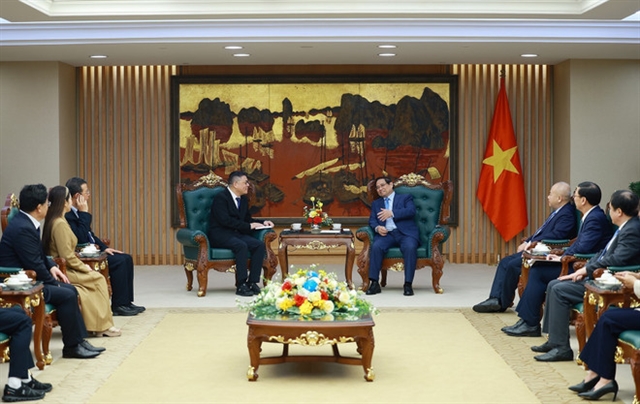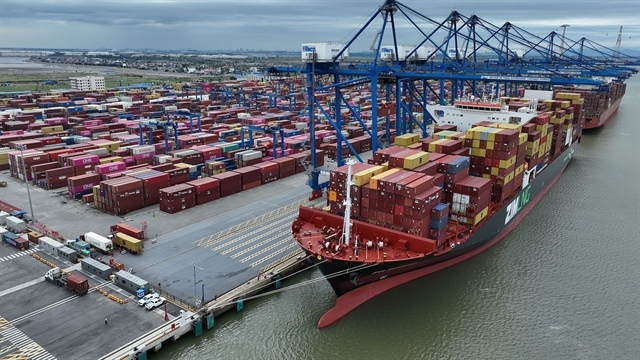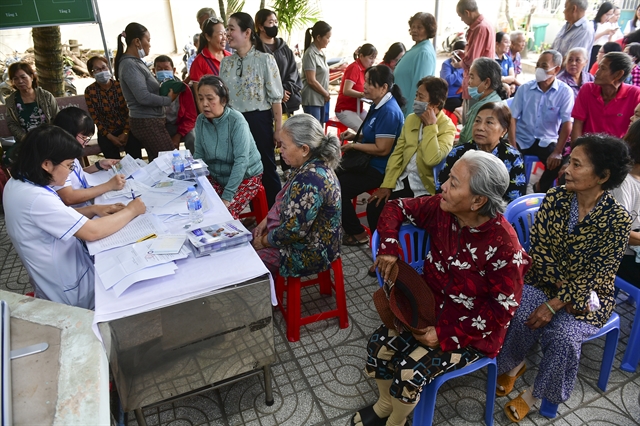 Society
Society
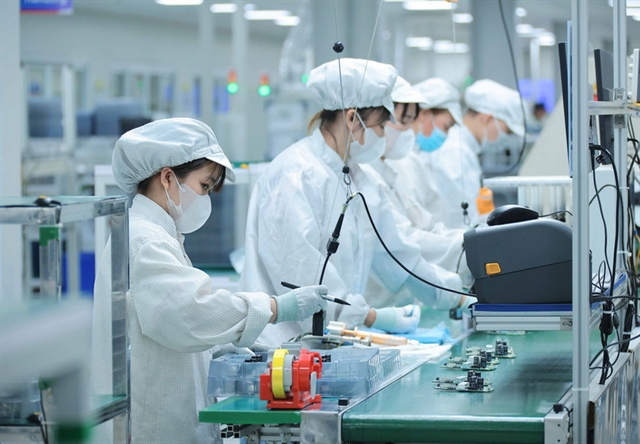
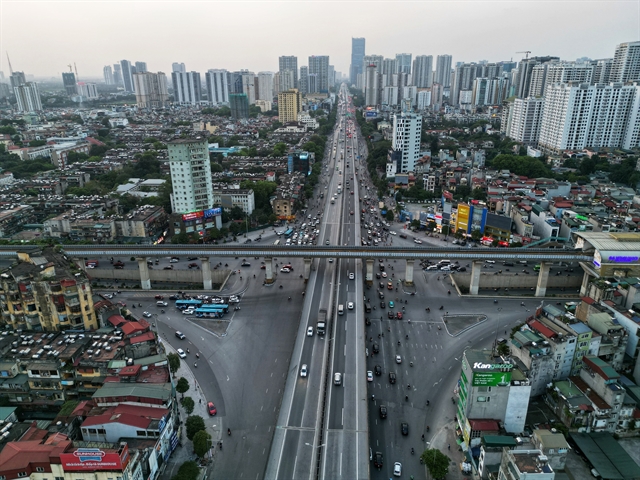 |
| The intersection of Nguyễn Xiển - Khuất Duy Tiến in Hà Nội. — VNA/VNS Photo Tuấn Anh |
HÀ NỘI — Hà Nội is told to collect tolls from vehicles entering the city from 2027, as one solution to develop a smart transportation system in the capital in the future.
“Developing the smart transportation system is one of the main pillars to build a smart city,” said Professor Lê Hùng Lân, head of the smart transportation project in Hà Nội, at the dialogue “Towards a smart and sustainable Hà Nội transportation system”, held on Wednesday in Hà Nội by the city’s Transport Department.
Lân also said there must be a specific roadmap for developing the smart transportation system in the capital.
In the first phase of 2024-26, the city should build a city traffic management and operation centre; install Intelligent Transportation System (ITS); connect data sources; and use connected ticket cards.
In the second phase of 2027-30, the city has to deploy inner-city toll collection; build an integrated smart traffic operation centre; innovate management methods; develop basic ITS applications; and install ITS peripheral device system.
In the third phase until 2045, the city will continue deploying inner-city toll collection, effectively operate the city’s ITS; complete ITS infrastructure and enhance digital traffic data mining applications.
According to Lân, ITS will have four main parts, consisting of ITS users; vehicles integrated with smart devices; smart traffic infrastructure and the city traffic monitoring and operations centre.
He said ITS users were people participating in traffic, traffic managers and operators. The users were not only beneficiaries of ITS services, but also contributors of information to the ITS.
According to the transport department, the transportation system is considered the lifeblood of the economy and the face of the city. Therefore, the city administration is always very interested in developing a modern transportation system that meets the travel needs of local people.
The capital People's Committee assigned the transport department to preside over and coordinate with relevant agencies to build the smart transportation system in the city.
The transport department selected Hà Nội-based University of Transport to carry out the project.
Challenges
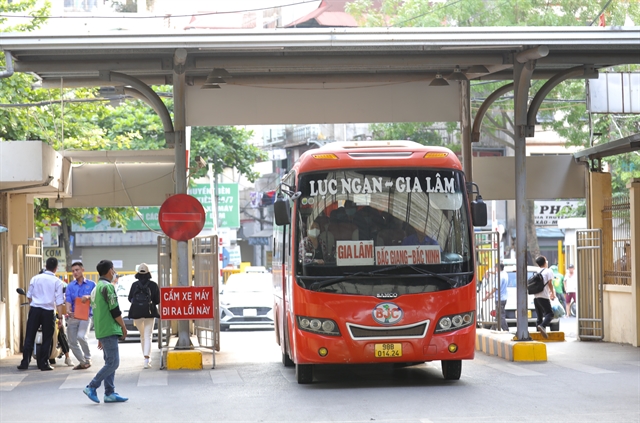 |
| A bus at Gia Lâm Bus Station in Hà Nội. — VNA/VNS Photo Hoàng Hiếu |
However, the implementation of the smart transportation system would face many challenges because currently the proportion of land for traffic was low while public transportation and green transportation had failed to meet people’s demand, Lân said.
Nguyễn Phi Thường, head of the transport department, said the city now had 1.1 million cars and 6.7 million motorbikes.
The city’s population increases by 200,000 people each year, equivalent to a large district, he said.
The number of cars increased by about 10 per cent, motorbikes increased by 3 per cent, and the total number of vehicles increased by about 4 per cent each year, he said.
"The city is very interested in spending money to improve infrastructure, but the speed of infrastructure development has not kept up with the increase in vehicle numbers," he said.
Statistics from the project showed that traffic jams during rush hours are common in the city.
In 2022, the city had a total of 35 traffic congestion points during rush hours. In 2023, the city has a total of 37 traffic congestion points during rush hours. Nine of 37 congestion points have been fixed so far.
Some studies figured out that damage due to traffic congestion in the city ranged from US$1-1.2 billion each year.
In terms of society, urban people's health has been affected because the air pollution index is five times higher than the permitted level, and PM2.5 dust concentration is about 3 times higher than the permitted concentration.
In terms of people's travel time, traffic congestion costs more than 1 million hours of work per year.
Evaluating the project, Trần Thiện Chính of Posts and Telecommunications Institute of Technology said that people are the main beneficiaries of the entire project.
The project is expected to contribute to improving the quality of basic urban services including transport service, he said. — VNS

